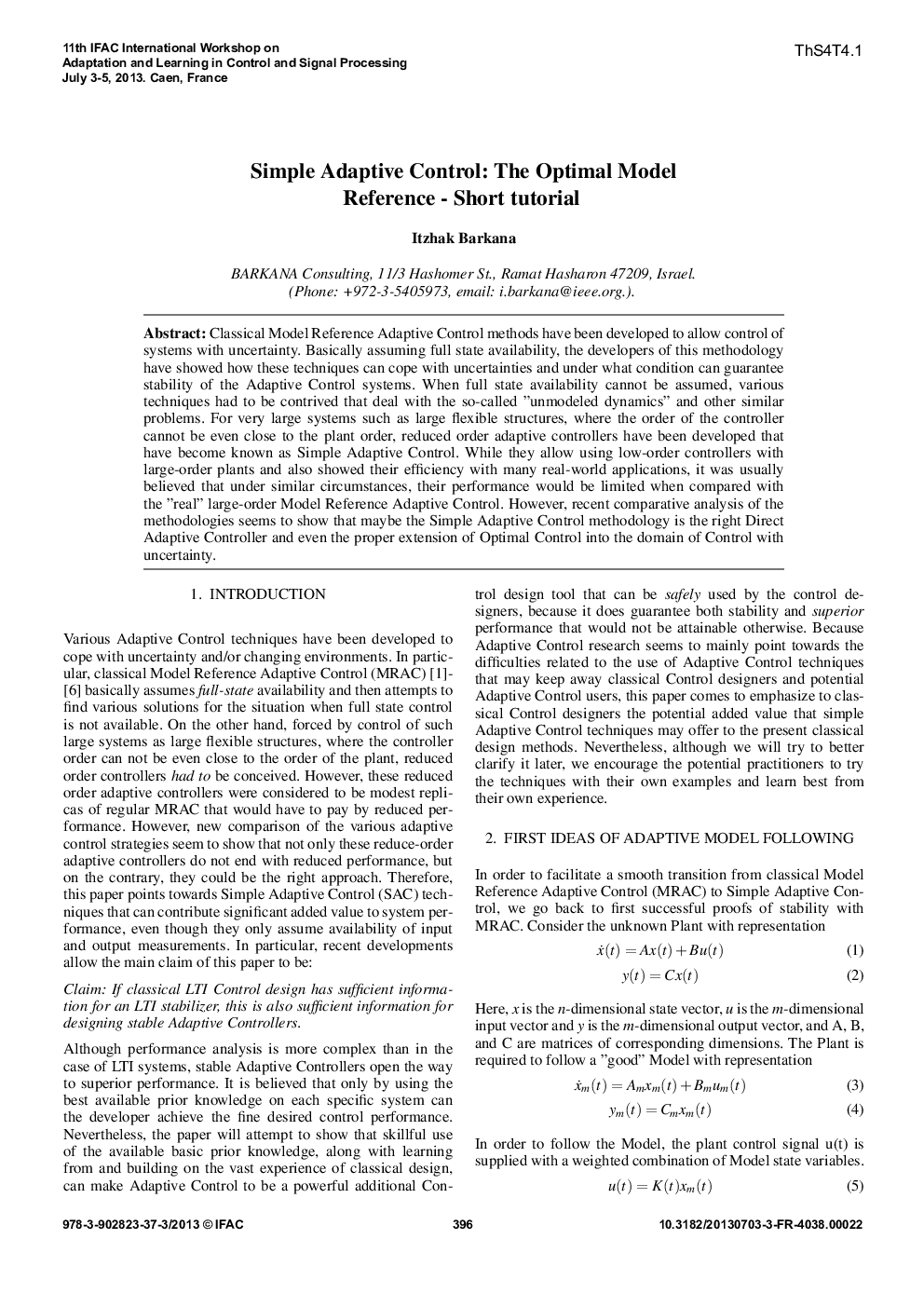| Article ID | Journal | Published Year | Pages | File Type |
|---|---|---|---|---|
| 713039 | IFAC Proceedings Volumes | 2013 | 12 Pages |
Classical Model Reference Adaptive Control methods have been developed to allow control of systems with uncertainty. Basically assuming full state availability, the developers of this methodology have showed how these techniques can cope with uncertainties and under what condition can guarantee stability of the Adaptive Control systems. When full state availability cannot be assumed, various techniques had to be contrived that deal with the so-called “unmodeled dynamics” and other similar problems. For very large systems such as large flexible structures, where the order of the controller cannot be even close to the plant order, reduced order adaptive controllers have been developed that have become known as Simple Adaptive Control. While they allow using low-order controllers with large-order plants and also showed their efficiency with many real-world applications, it was usually believed that under similar circumstances, their performance would be limited when compared with the “real” large-order Model Reference Adaptive Control. However, recent comparative analysis of the methodologies seems to show that maybe the Simple Adaptive Control methodology is the right Direct Adaptive Controller and even the proper extension of Optimal Control into the domain of Control with uncertainty.
